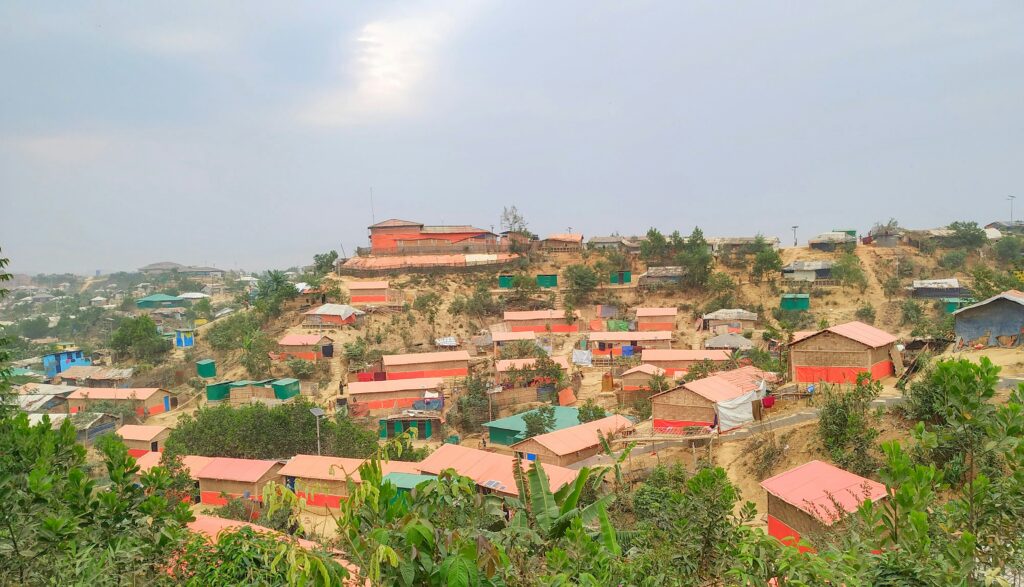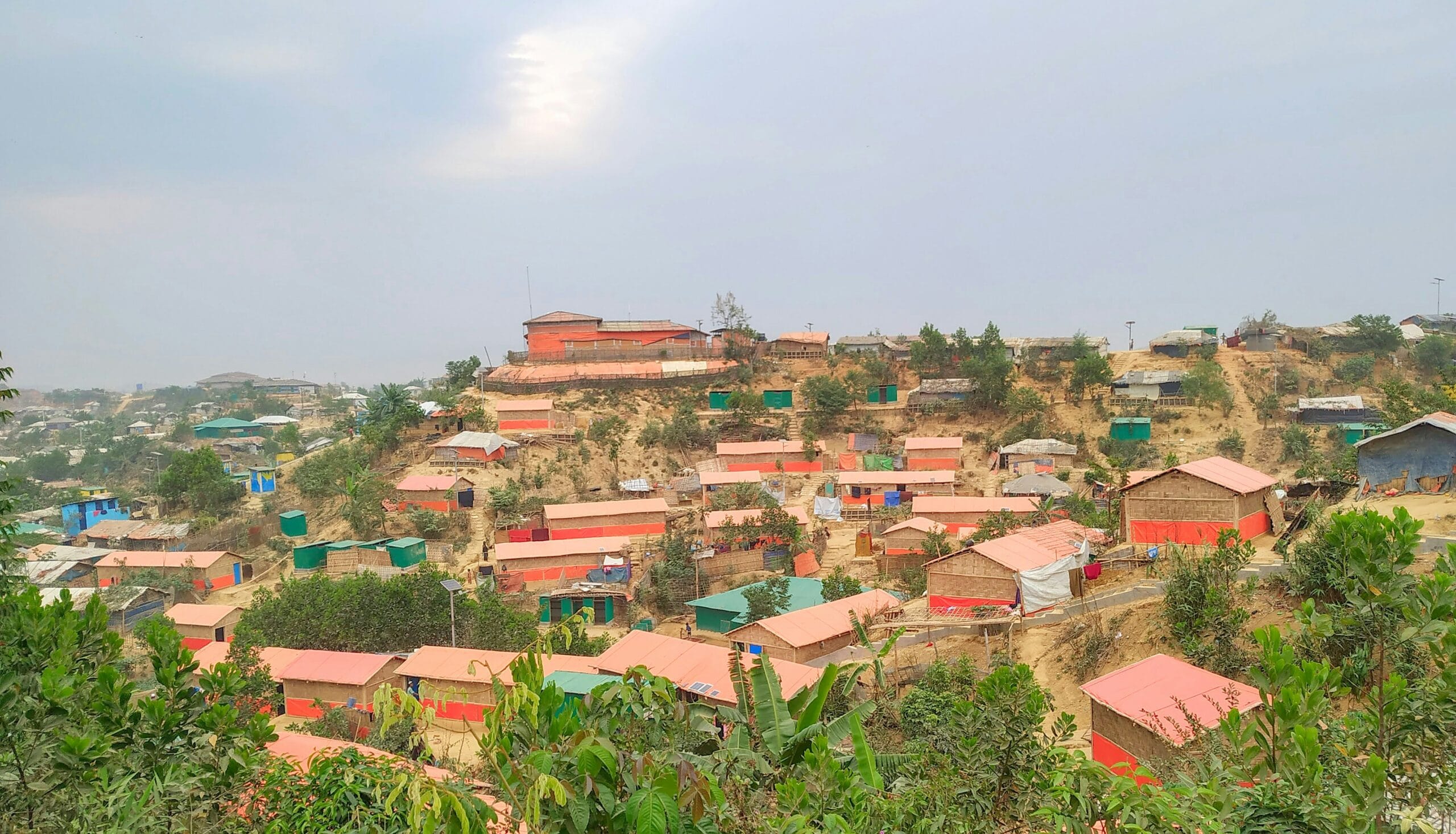
Humanitarian translation goes beyond words—it saves lives.
Translators working in crisis zones or humanitarian settings must uphold fundamental ethical standards. Like all humanitarian workers, translators too must uphold the four core humanitarian principles:
- Humanity – Putting People First
- Neutrality – Staying Unbiased in Conflict
- Impartiality – Providing Help Without Discrimination
- Independence – Working Free from External Influence
These four core humanitarian principles serve as guiding values for organizations like the United Nations (UN), International Red Cross, and NGOs worldwide. Whether you’re translating for refugees, disaster relief efforts, or medical missions, understanding these principles ensures accuracy, ethical responsibility, and trust.
Failing to follow these principles can jeopardize lives, create misinformation, or fuel conflict. This article explores how humanitarian translators can apply these principles to ensure ethical, effective, and life-saving communication.
What is Humanitarian Response?
Humanitarian response refers to the external aid provided to people affected by crises, such as natural disasters or man-made conflicts like war.
Translators as Humanitarian Workers
In times of crisis, humanitarian organizations work tirelessly to provide relief. While doctors, aid workers, and logisticians are often in the spotlight, translators play a vital but often overlooked role. They bridge the communication gap, ensuring that crucial information reaches affected communities in their native languages, enabling effective response and delivery of services.
How Translators Support Humanitarian Actions
- Facilitating Communication: Translators ensure that vital information is communicated accurately in native languages.
- Providing Cultural Context: They offer cultural insights to ensure effective understanding.
- Assisting in Needs Assessments: Translators conduct interviews and surveys to help aid organizations assess needs.
- Supporting Medical Care: They interpret for healthcare professionals, helping deliver medical services.
- Supporting humanitarian organizations: NGOs, the UN, and international agencies rely on translators to communicate with governments, local authorities, and affected communities.
What Are the 4 Core Humanitarian Principles?
Humanitarian principles guide how aid should be provided during crises. These principles guide those directly aiding affected populations. While translators may not work in the field, they must ensure their work aligns with these principles. Adopted by the United Nations General Assembly under resolution AG 46/182, these four principles are:
- Humanity: The goal is to prevent and alleviate human suffering, protect life and health, and ensure respect for all individuals.
- Neutrality: Humanitarian organizations must remain neutral, avoiding involvement in political, racial, religious, or ideological conflicts.
- Impartiality: Aid must be given without discrimination, ensuring that everyone, regardless of background, receives the help they need.
- Independence: Humanitarian action must remain free from political, financial, or other external influences.
Applying Humanitarian Principles in Translation
Translators working in humanitarian settings must ensure their translations uphold the core principles of humanity, neutrality, impartiality, and independence. This means accurately conveying messages without bias and ensuring that all individuals, regardless of their background, receive the assistance they need.
Principle 1. Humanity – Putting People First
The principle of humanity ensures that humanitarian aid exists to prevent and alleviate human suffering, prioritizing dignity, safety, and well-being.
How Translators Uphold Humanity
- Ensuring accurate, culturally appropriate translations so affected communities understand critical information.
- Communicating with compassion and respect, even in traumatic situations.
- Helping to break language barriers in life-threatening scenarios.
Avoiding Harm: The Role of Cultural Sensitivity
- Certain phrases, symbols, or gestures may carry different meanings across cultures.
- Example: In some cultures, discussing mental health openly can be taboo—translators must find sensitive ways to convey critical information.
Real-Life Scenario: Translating Medical Aid in Disaster Zones
A translator working with Doctors Without Borders helps a non-English-speaking earthquake victim understand emergency medical procedures. Here, misinterpretation of dosages or symptoms could lead to fatal consequences.
Principle 2. Neutrality – Staying Unbiased in Conflict
Humanitarian organizations must not take sides in conflicts, ensuring aid is delivered without political or military influence.
Why Translators Must Remain Neutral
- Avoiding unintentional bias in war zones or politically sensitive settings.
- Ensuring that all parties receive fair and equal access to information.
- Preventing misinterpretation that could escalate tensions.
Challenges of Neutrality: Handling Sensitive Documents
- Translating classified government reports without personal or political bias.
- Avoiding loaded language that could sway public perception.
Real-life Scenario: Translating for Both Sides in a Refugee Crisis
A humanitarian translator working for the United Nations High Commissioner for Refugees (UNHCR) facilitates negotiations between conflicting ethnic groups. By using neutral terms and unbiased phrasing, the translator helps prevent miscommunication and escalation.
Principle 3. Impartiality – Providing Help Without Discrimination
Humanitarian aid must be provided based on need alone, without discrimination by race, religion, nationality, or political beliefs.
Translators’ Role in Ensuring Fair Access to Information
- Translating medical, legal, and safety instructions for all affected communities, not just dominant language speakers.
- Providing equal assistance to minority or marginalized groups who might otherwise be overlooked.
Ethical Dilemmas: Avoiding Bias in Language Choices
- Certain words or phrasing can carry political or ideological weight.
- Example: A refugee or migrant? The terminology affects legal rights and public perception.
Real-life Scenario: Translating Legal Documents for Asylum Seekers
An interpreter helps asylum seekers from different religious and ethnic backgrounds navigate complex immigration laws. Ensuring fair and consistent interpretation prevents unintended bias that could impact asylum decisions.
Principle 4. Independence – Working Free from External Influence
Humanitarian organizations must operate independently from government agendas, military operations, or corporate interests.
The Importance of Independent Translation
- Translators must prioritize humanitarian needs over political or financial pressures.
- Ensuring that crisis reports are factual and unaltered, even when under pressure from authorities.
Avoiding Conflicts of Interest: NGOs vs. Government Agencies
- Working with humanitarian NGOs often requires neutral, needs-based translation.
- Government-backed translation may have political motives—translators must uphold transparency.
Real-Life Scenario: A Translator Refusing to Alter Crisis Reports
A humanitarian interpreter in a war zone is asked by government officials to modify a refugee crisis report. Maintaining independence, they refuse, ensuring that the true conditions are accurately reported.
Why Humanitarian Principles Matter for Translators
Translators in humanitarian settings play a crucial role in crisis communication, ensuring that life-saving information reaches those in need. Whether they are working with refugees, disaster relief teams, or medical organizations, translators must navigate ethical challenges while upholding the four core humanitarian principles: humanity, neutrality, impartiality, and independence.
Ethical Challenges in Humanitarian Translation
- Accuracy vs. urgency: In emergencies, translators must work under pressure without compromising accuracy.
- Dealing with sensitive information: Translators handle confidential medical, legal, and personal records, requiring strict ethical standards.
- Maintaining neutrality: In conflict zones, translators may feel personal biases or external pressures—remaining neutral is critical.
- Avoiding unintentional harm: Poor translation can lead to misunderstandings, legal issues, or even life-threatening mistakes.
How These Principles Protect Both Translators and Affected Communities
- Ensuring fair access to aid: Impartial translation prevents discrimination and ensures that all individuals, regardless of background, receive help.
- Preventing conflicts of interest: Independence protects translators from political or financial influence that could compromise their work.
- Building trust: Humanitarian work depends on trust—adhering to these principles strengthens credibility and reliability in translation.
- Protecting translators from harm: Working in dangerous environments, translators who uphold these principles can avoid being seen as biased actors and stay safer.
Ethical Decision-Making Frameworks for Translators
In humanitarian contexts, translators may face challenging ethical decisions, such as translating sensitive or controversial information. To navigate these situations:
- Prioritize the well-being of those affected by the crisis.
- Strive for accuracy and neutrality, even when the information may be difficult or uncomfortable.
- Consider cultural sensitivity and the impact of language choices on vulnerable communities.
Training and Resources for Humanitarian Translators
To better prepare for humanitarian translation work, translators should seek relevant training and resources:
- Training: Courses on humanitarian aid, crisis communication, and cultural competency can help translators understand the unique challenges of working in these settings.
- Resources: Engage with organizations like Translators without Borders and the International Red Cross for specialized guidance and support.
👉 Looking for more resources? Explore humanitarian translation courses, certifications, and organizations supporting crisis translators.
Subscribe to the Translators’ Journal Newsletter for expert tips, industry insights, and freelance success strategies—delivered straight to your inbox. 👉 Subscribe Now!
FAQs: Humanitarian Translation and Ethical Responsibilities
1. Why do humanitarian translators need to follow these principles?
These principles—humanity, neutrality, impartiality, and independence—ensure ethical and effective communication, prevent bias, and protect both translators and affected communities. Without them, misinformation or favoritism could jeopardize lives.
2. Can humanitarian translators refuse to translate content they find unethical?
Yes. If a translation request conflicts with humanitarian principles (e.g., biased political messaging, misinformation, or content that endangers lives), a translator has the ethical responsibility to decline or raise concerns.
3. How can translators maintain neutrality in politically sensitive translations?
By using unbiased language, avoiding emotionally charged terminology, and ensuring that all perspectives are represented fairly without inserting personal opinions or political stances.
4. What are the biggest challenges humanitarian translators face?
- Time pressure: Urgent situations require fast yet accurate translation.
- Emotional toll: Working with crisis-affected populations can be emotionally challenging.
- Cultural sensitivity: Ensuring messages are not only translated but also adapted for cultural understanding.
5. How can I become a humanitarian translator?
Consider joining organizations like Translators without Borders (TWB), the UN, or the Red Cross. Specialized training in humanitarian translation, crisis response, and ethics is also beneficial.
6. What tools or resources can help humanitarian translators?
- Glossaries and terminology databases (e.g., WHO, UNHCR, ICRC resources)
- Crisis translation training (offered by NGOs and online courses)
- Machine translation tools with human oversight for efficiency in emergencies
7. Where can I find humanitarian translation opportunities?
Check platforms like Translators without Borders, UN Volunteer Program, or NGOs working in crisis response.
Are You Looking for Jobs in the Language Industry?
If you are looking for in-house jobs, you should check out Weekly Job Window.
Every week, we handpick in-house jobs for translators, interpreters, linguists, writers, editors, and localization professionals so you can stay updated without searching hundreds of listings spread across the internet.
You can access the latest jobs of the current week here. Feel free to bookmark it as well.
To get the full list every week to your inbox, subscribe.


